Top 10 AI Tools for Research Paper that You Must Use
In the rapidly evolving landscape of academic research, the integration of artificial intelligence (AI) has been nothing short of revolutionary. AI tool for research paper have not only expedited the research process but have also elevated the quality of research papers. This article explores the top 10 AI tools that can significantly enhance your research paper writing experience. From simplifying complex data analysis to streamlining the writing process, these tools are invaluable for researchers across various domains. Whether you're a seasoned academic or a budding scholar, these AI tools for research paper can help you create research papers that stand out in the academic world.

Catalogs:
Part 1: What Is the AI Tool for Writing Research Papers?
Before delving into the specifics of the top 10 free ai tools for research paper writing, it's essential to understand what AI tools for research papers entail. These AI tools are designed to assist researchers at various stages of the research process, from data analysis to generating written content.
They leverage machine learning algorithms, natural language processing, and other AI technologies to automate tasks that would typically require substantial time and effort. These tools aim to enhance research productivity, improve the quality of research papers, and simplify the overall research journey.
Part 2: Top 10 AI Tools for Research Paper
Top 1: Tenorshare AI - PDF Tool
Tenorshare AI - PDF Tool stands as a top-notch AI PDF summarization tool, swiftly extracting and condensing information from PDF documents. Moreover, it offers comprehensive insights and clear responses when you inquire about the entire PDF document.
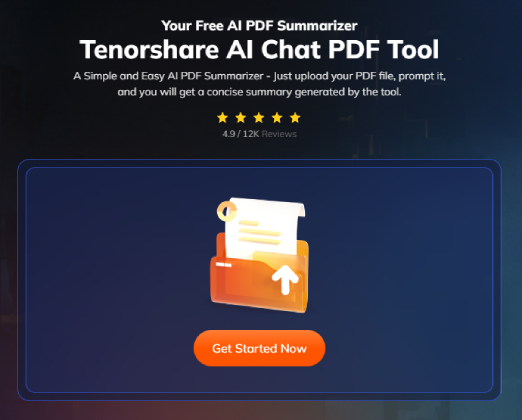
Main Features:
Tenorshare AI encompasses a range of features that enable users to interact with PDFs in a human-like manner. Some of its standout features include:
- The ability to extract information from PDFs of varying lengths and types.
- A user-friendly interface, ensuring ease of use.
- Quick extraction of data from PDFs, sparing users the ordeal of navigating lengthy documents.
- Rapid summarization of PDFs within minutes.
- The option for users to pose queries related to the PDF content, with the tool responding accordingly.
Pros:
- A user-friendly chat interface and page for quick initiation.
- Automatic language identification for uploaded PDF files, resulting in multilingual responses.
- Humanized responses that create a real-time, human-like interaction experience.
- Intelligent summary generation, providing an instant overview of the entire document upon upload.
- Web-based AI tool, eliminating the need for downloads.
Cons:
- The precision of answers tends to decrease for content beyond the 10th page, a limitation shared with other AI summarization tools.
How to Utilize Tenorshare AI - PDF Tool for Summarizing Text/Articles/Books in PDF Format:
Step 1: Visit the AI tool for summarizing research paper and upload your PDF files.
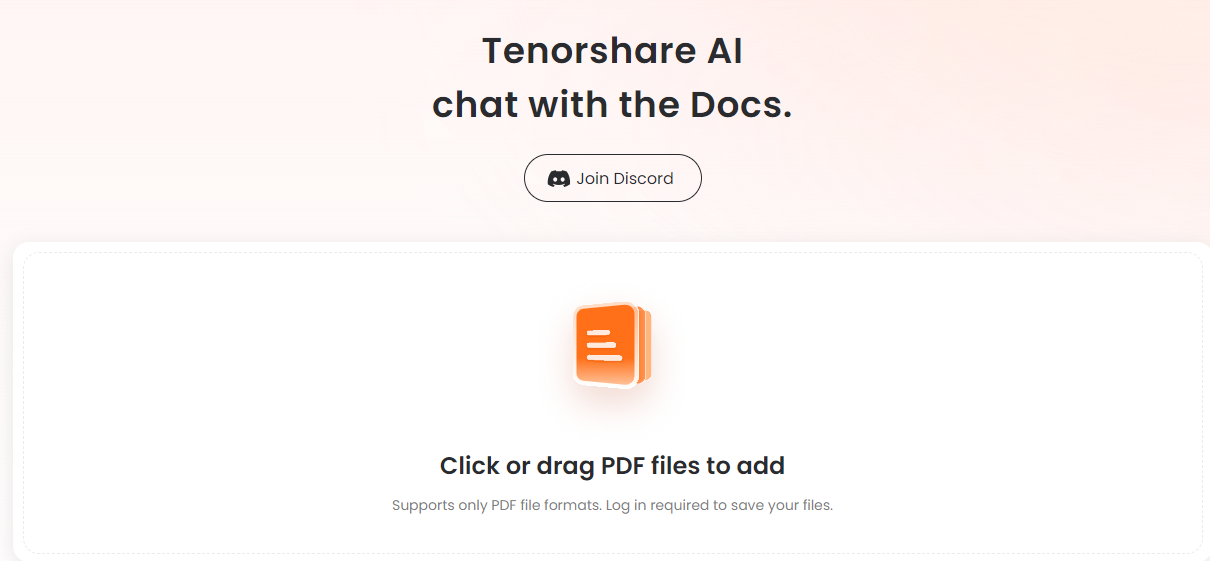
Step2: Create an account and log in.

Step 3: Interact with the tool by asking questions about the document or requesting it to summarize the PDF content.
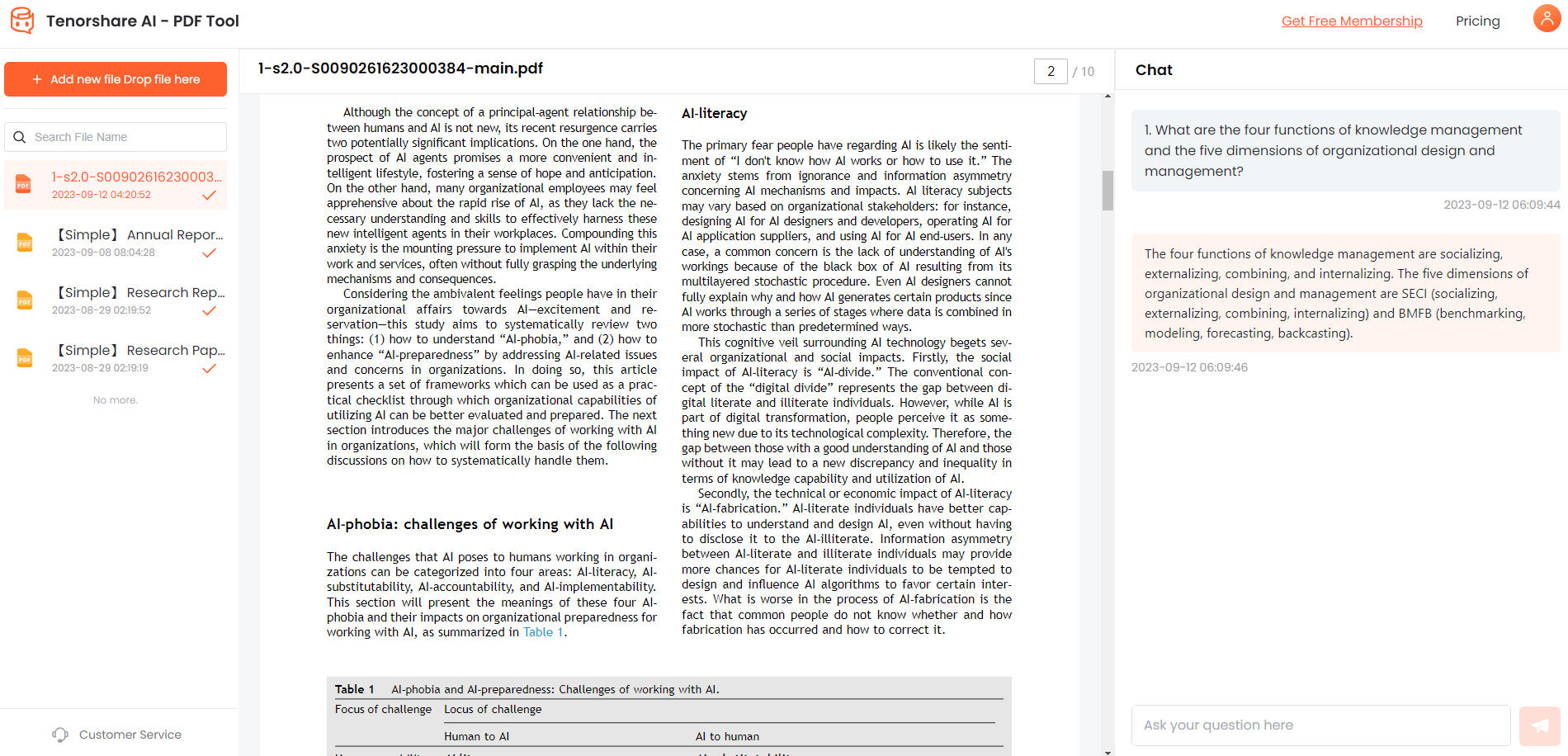
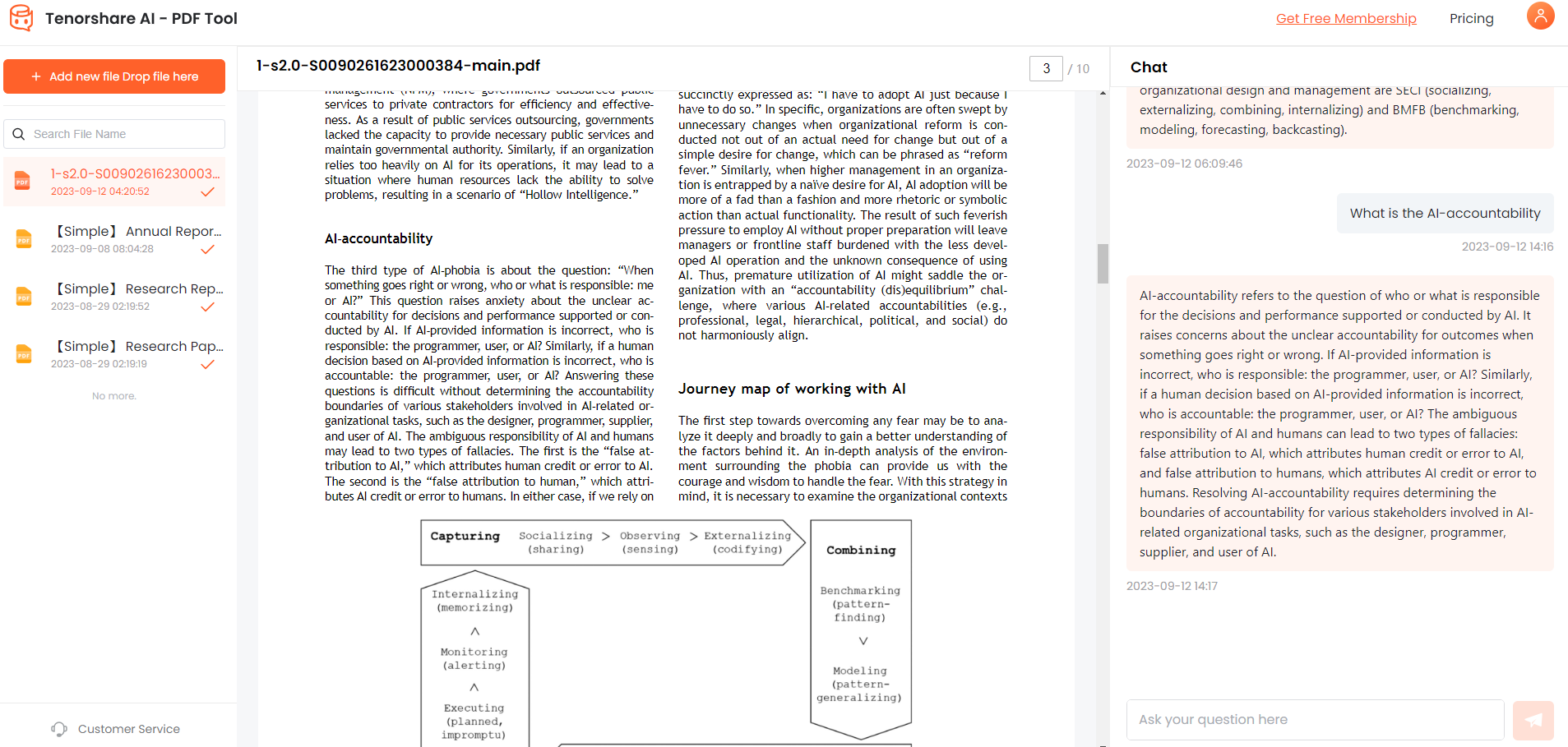
Top 2: ChatGPT
ChatGPT, developed by OpenAI, is an AI language model renowned for its capacity to generate human-like text. Researchers utilize it for a wide array of writing tasks, including drafting research papers.
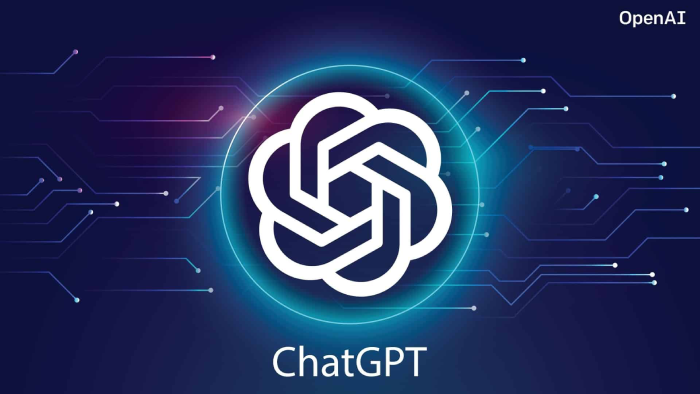
Main Features: ChatGPT's key features encompass natural language understanding, content generation, and maintaining coherent conversation flow.
Pros: The tool is celebrated for generating high-quality content, aiding in idea generation, and serving as a virtual writing assistant.
Cons: Some researchers may find that the generated text requires post-editing for academic rigor, and there may be occasional inaccuracies.
Price: $20/Month
User Experience: Researchers often find ChatGPT invaluable for generating initial drafts and overcoming writer's block.
Top 3: ChatPDF
ChatPDF is an AI tools for research paper writing in the analysis, conversion, and summarization of PDF documents, which are commonly encountered in academic research.
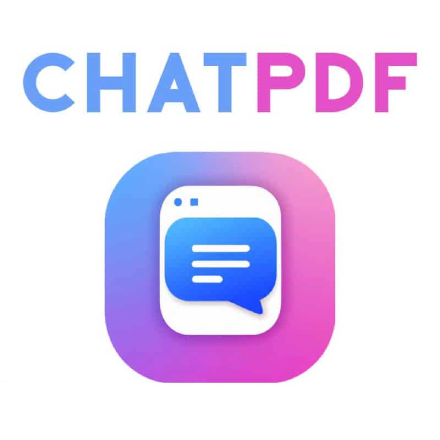
Main Features: It boasts the capability to convert PDFs into various formats, extract text, and create concise summaries of content.
Pros: Researchers appreciate ChatPDF for simplifying tasks related to PDF documents. It streamlines the process of converting, summarizing, and working with research papers stored in PDF format.
Cons: Complex formatting in PDFs may not always be accurately translated, and extensive summaries might lack nuanced insights.
Price: $5/Month
User Experience: Researchers frequently turn to ChatPDF to expedite PDF-related tasks, making it more convenient to extract and work with information from research papers.
Top 4: Consensus
Consensus is an AI tool specifically engineered to facilitate collaborative writing and decision-making among research teams.

Main Features: It streamlines team collaboration, tracks changes made to documents, and offers version control for research papers.
Pros: Research teams benefit from Consensus by enhancing collaboration and maintaining a clear record of document changes throughout the research paper writing process.
Cons: Some users may experience a learning curve, and it primarily focuses on collaborative aspects rather than content generation.
Price: $6.99 /Month
User Experience: Consensus is highly valued among research teams for its ability to simplify collaboration and ensure everyone stays aligned during the research paper writing process.
Top 5: Trinka
Trinka is an AI tool for research paper known for its capacity to enhance the overall quality of written content.

Main Features: It provides grammar and style suggestions, checks for plagiarism, and offers recommendations to enhance the clarity and readability of text.
Pros: Trinka is a boon to researchers seeking to elevate the quality of their writing. It ensures that research papers meet high academic standards by enhancing readability and clarity.
Cons: While it's an excellent tool for proofreading, some users may prefer human proofreading for complex academic texts, and suggestions might need to be adapted to specific research fields.
Price: $20/Month
User Experience: Researchers appreciate Trinka for its ability to refine the quality of their writing, making their research papers appear more polished and professional.
Top 6: Elicit
Elicit is an AI tool primarily focused on data extraction and analysis from academic sources, making it invaluable for research involving data-heavy papers.
Main Features: It efficiently extracts data from research papers, organizes it into structured formats, and provides insights based on the extracted data.
Pros: Elicit simplifies the often cumbersome process of data extraction, allowing researchers to collect and analyze data from academic sources with ease.
Cons: For papers with complex data structures, some manual adjustments may be necessary. Additionally, its primary focus is on data extraction rather than content generation.
Price: $1 for 1,000 credits
User Experience: Researchers dealing with data-intensive research papers find Elicit invaluable for speeding up the data extraction process.
Top 7: Scite
Scite is an AI-powered tool that assists researchers in verifying the credibility of academic sources, a critical aspect of research paper writing.

Main Features: It provides citation context and helps researchers evaluate the reliability of references used in their research papers.
Pros: Scite is a valuable aid in identifying high-quality sources ensuring the robustness of research papers by validating the accuracy and relevance of references.
Cons: While it is indispensable for source evaluation, it does not directly contribute to content creation or data analysis.
Price: $5/Month
User Experience: Researchers find Scite an essential tool for ensuring the accuracy and credibility of their research sources.
Top 8: Academic Semantics
Academic Semantics is an AI tool specializing in the semantic analysis of research papers, helping researchers uncover hidden insights within academic texts.

Main Features: It assists researchers in identifying key concepts, relationships, and themes within academic texts, making it particularly useful for literature reviews and concept mapping.
Pros: Academic Semantics aids in content understanding and can be valuable for researchers aiming to conduct in-depth analyses of academic texts.
Cons: For complex research papers, it may not entirely replace manual analysis, and its utility depends on specific research needs.
User Experience: Researchers appreciate Academic Semantics for its ability to unveil concealed insights within academic texts.
Top 9: SciSpace
SciSpace is an AI tools for research paper to assist researchers in organizing and visualizing scientific knowledge, facilitating clearer communication and understanding.
Main Features: It offers knowledge graph creation, data visualization, and concept mapping, making it ideal for visually representing research findings.
Pros: Researchers can utilize SciSpace to create visually engaging representations of their research, improving the communication of complex ideas.
Cons: Users unfamiliar with knowledge graph creation may experience a learning curve, and its utility primarily revolves around visual knowledge representation.
Price: $8/Month
User Experience: Researchers value SciSpace for creating visually compelling representations of their research findings, aiding in the effective communication of their work.
Top 10: Bit.ai
Bit.ai is an AI-enhanced document collaboration platform focused on simplifying research paper writing and sharing.
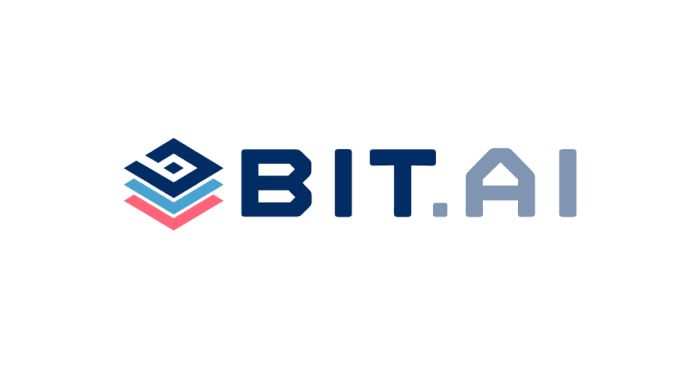
Main Features: It streamlines collaborative document creation, offers document tracking, and allows content embedding.
Pros: Bit.ai is particularly useful for research teams as it simplifies document collaboration and version control, making it easier to co-author and share research papers.
Cons: Its primary focus is on document collaboration so additional AI tools may be required for content generation and analysis.
Price: $12/month
User Experience: Research teams find Bit.ai invaluable for simplifying document collaboration and ensuring smooth version control during the research paper writing process.
Part 3: FAQ
Q1: Is There an AI Tool to Summarize Research Papers for Free?
There are AI tools available that offer free basic summarization features for research papers. These tools use natural language processing and machine learning algorithms to condense lengthy research papers into shorter, more digestible summaries. However, it's important to note that the quality and comprehensiveness of free summarization tools may vary. While they can provide a quick overview of the paper's content, more advanced and accurate summarization may require premium versions or specialized tools.
Researchers can explore free AI tools like Tenorshare AI - PDF Tool, which provides basic summarization capabilities, or trial versions of premium tools that offer more advanced summarization features. The choice depends on the specific needs and preferences of the researcher.
Q2: What Is the AI Tool to Simplify Research Papers?
Several AI tool for summarizing research paper are designed to simplify the process of working with research papers. These tools aim to streamline various aspects of research paper writing and analysis. Researchers need to choose the AI tool that aligns with their specific needs and challenges, as different tools cater to different aspects of research paper writing and analysis.
Q3: Is There Any Free AI Writing Tool?
There are AI writing tools available for free, offering basic features that can assist researchers in their writing tasks. These free AI writing tools are often accessible through online platforms or applications and can provide valuable assistance in generating content, improving writing quality, and overcoming writer's block. Tenorshare AI - PDF Tool may offer some basic features for free, allowing researchers to convert PDF documents and perform basic summarization.
Conclusion
The integration of AI tool for summarizing research paper into the world of research paper writing has ushered in a new era of efficiency and quality. The top 10 AI tools discussed in this article offer unique capabilities that cater to the diverse needs of researchers. Whether you require assistance in data extraction, content generation, collaborative writing, or source verification, there is an AI tool tailored to your needs. These tools are not meant to replace the intellect and creativity of researchers but rather to enhance their capabilities, making the research process more manageable and enjoyable. As technology continues to advance, we can expect even more innovative AI solutions to revolutionize the field of academic research further. While each of these AI tools has its unique strengths and specialization, one standout tool that deserves strong consideration is " Tenorshare AI - PDF Tool." This tool excels in swiftly extracting and summarizing information from PDF documents, a common and often time-consuming task in academic research.
You Might Also Like
- [2026 Tutorial] PDF to AI Converter Online & Free
- [2026 Free] How to convert a PDF to a Word document without software?
- Top 10 Best AI PowerPoint Generators Free in 2026
- [NEW Tools] Top 7 AI PDF to Word Converters in 2026
- How to Blackout Text in PDF Free - 3 Online and 3 Offline Methods
- Best Picks:Top 5 AI PDF to Text Converter Online 2026 [Newest]

